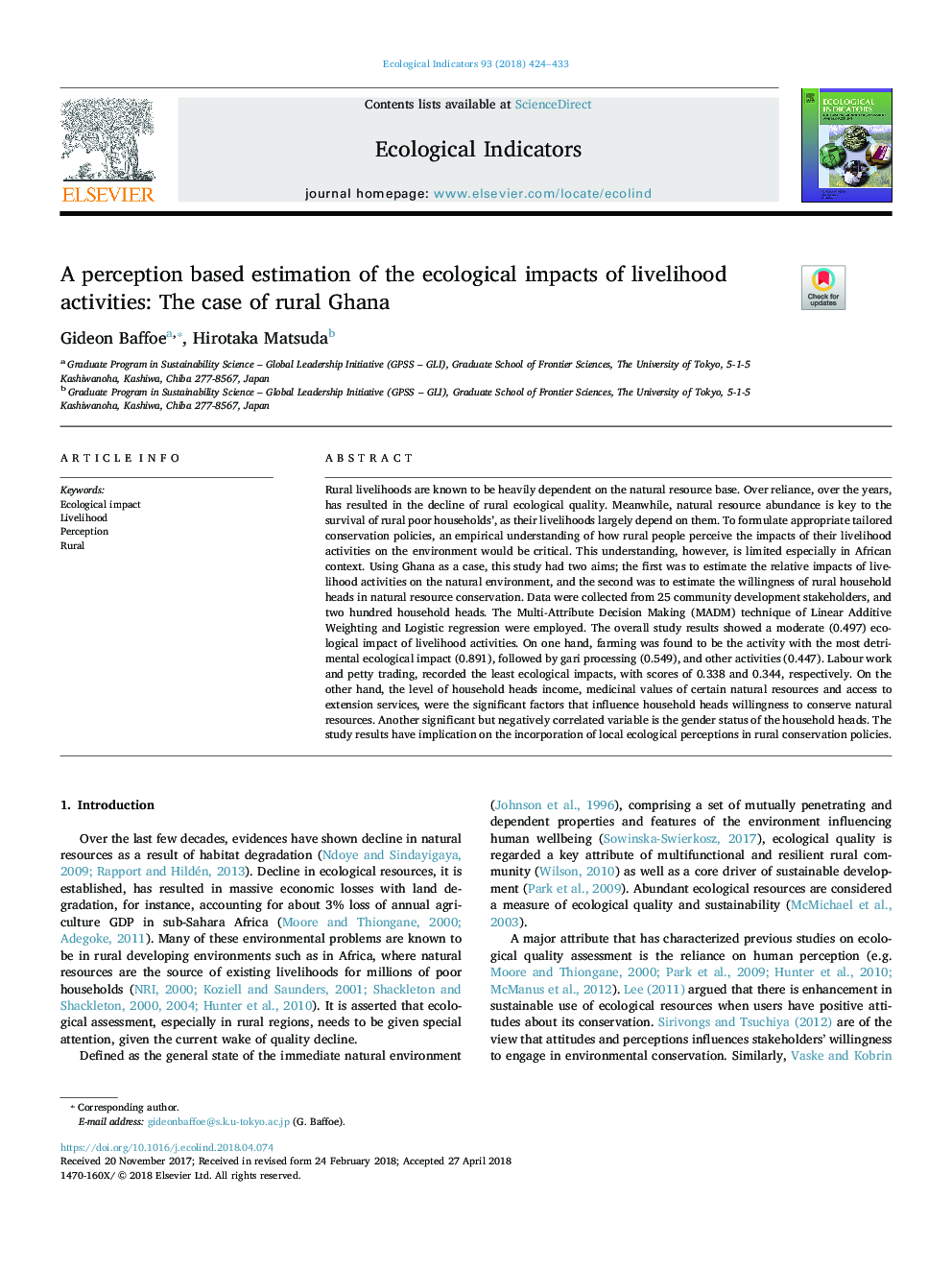| کد مقاله | کد نشریه | سال انتشار | مقاله انگلیسی | نسخه تمام متن |
|---|---|---|---|---|
| 8845155 | 1617109 | 2018 | 10 صفحه PDF | دانلود رایگان |
عنوان انگلیسی مقاله ISI
A perception based estimation of the ecological impacts of livelihood activities: The case of rural Ghana
ترجمه فارسی عنوان
برآورد مبتنی بر درک اثرات زیست محیطی فعالیت های معیشتی: مورد غنا روستایی
دانلود مقاله + سفارش ترجمه
دانلود مقاله ISI انگلیسی
رایگان برای ایرانیان
کلمات کلیدی
تاثیر اکولوژیکی، معیشت، ادراک، روستایی،
موضوعات مرتبط
علوم زیستی و بیوفناوری
علوم کشاورزی و بیولوژیک
بوم شناسی، تکامل، رفتار و سامانه شناسی
چکیده انگلیسی
Rural livelihoods are known to be heavily dependent on the natural resource base. Over reliance, over the years, has resulted in the decline of rural ecological quality. Meanwhile, natural resource abundance is key to the survival of rural poor households', as their livelihoods largely depend on them. To formulate appropriate tailored conservation policies, an empirical understanding of how rural people perceive the impacts of their livelihood activities on the environment would be critical. This understanding, however, is limited especially in African context. Using Ghana as a case, this study had two aims; the first was to estimate the relative impacts of livelihood activities on the natural environment, and the second was to estimate the willingness of rural household heads in natural resource conservation. Data were collected from 25 community development stakeholders, and two hundred household heads. The Multi-Attribute Decision Making (MADM) technique of Linear Additive Weighting and Logistic regression were employed. The overall study results showed a moderate (0.497) ecological impact of livelihood activities. On one hand, farming was found to be the activity with the most detrimental ecological impact (0.891), followed by gari processing (0.549), and other activities (0.447). Labour work and petty trading, recorded the least ecological impacts, with scores of 0.338 and 0.344, respectively. On the other hand, the level of household heads income, medicinal values of certain natural resources and access to extension services, were the significant factors that influence household heads willingness to conserve natural resources. Another significant but negatively correlated variable is the gender status of the household heads. The study results have implication on the incorporation of local ecological perceptions in rural conservation policies.
ناشر
Database: Elsevier - ScienceDirect (ساینس دایرکت)
Journal: Ecological Indicators - Volume 93, October 2018, Pages 424-433
Journal: Ecological Indicators - Volume 93, October 2018, Pages 424-433
نویسندگان
Gideon Baffoe, Hirotaka Matsuda,
